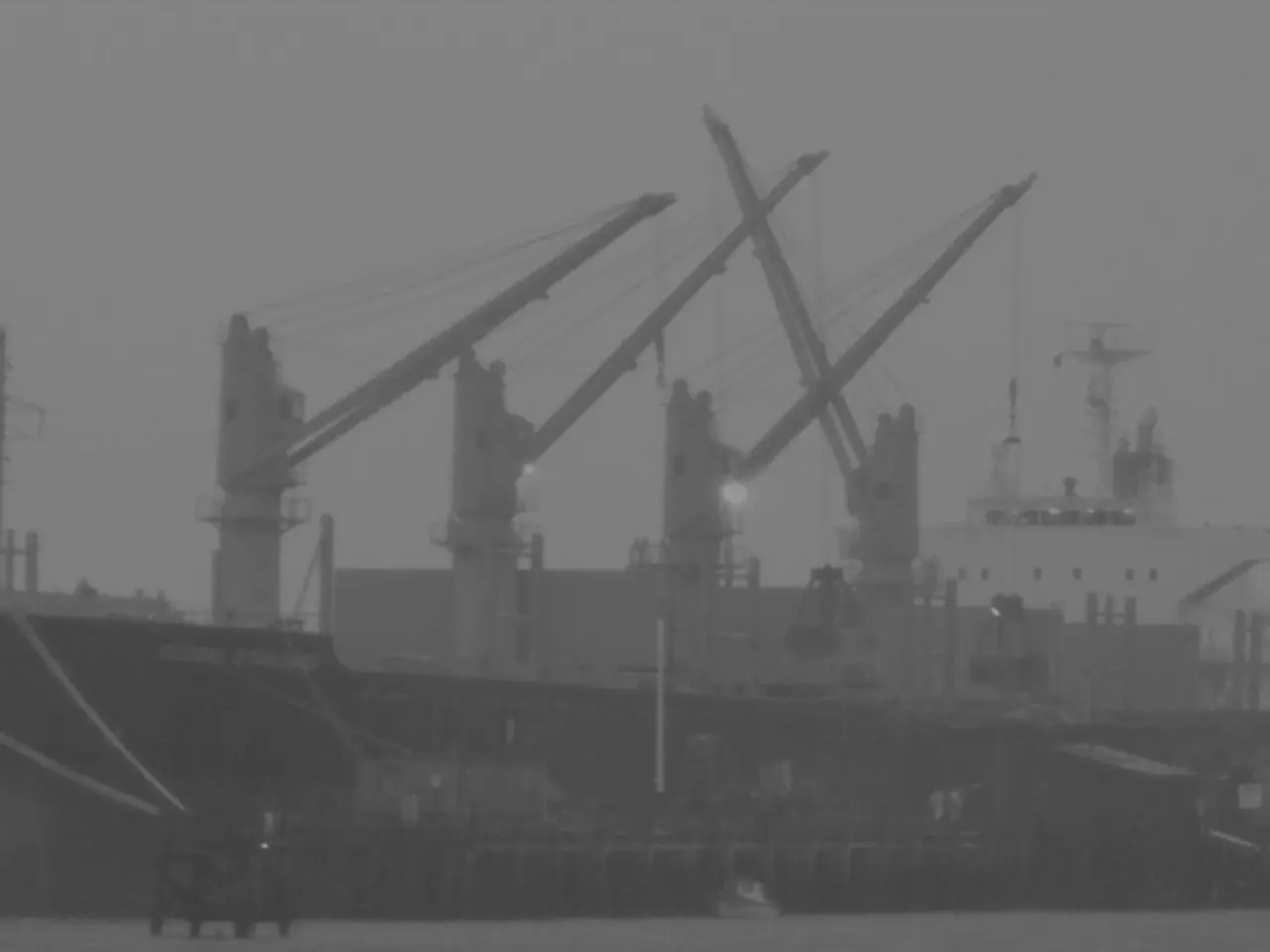Offshore fuel transportations undertaken by Nayara
Nayara Energy, a significant Indian refiner with a 49% stake held by Russia's Rosneft PJSC, has been affected by the new European Union (EU) sanctions targeting Russian-linked oil companies. These sanctions have led to reduced refinery runs and export constraints at Nayara's Vadinar refinery [2][4].
In an effort to maintain fuel exports, Nayara has turned to ship-to-ship transfers. This method allows cargos to swap vessels at sea, potentially concealing cargo origins or destinations under tightening scrutiny [3]. One such example involves a cargo that was initially planned for a different destination but was diverted to China after a month-long delay due to difficulties in finding buyers under the sanction conditions [3].
The diverted cargo was transferred from the gasoline shipment onboard the Tempest Dream to the larger tanker Wu Tai in the waters off Oman. The Tempest Dream, previously named Unite, was sanctioned by the UK for its involvement in the Russian oil trade [6]. Before the transfer, the Tempest Dream was carrying over 360,000 barrels of gasoline [7].
The Tempest Dream, owned by Tempest Maritime Services Trading, is listed on the S&P maritime database. However, no contact information for Tempest Maritime Services Trading or Namas Maritime Inc., the owner of Wu Tai, was available in the S&P maritime database [1]. An email to Nayara seeking comment was not immediately answered [5].
The Tempest Dream is now headed back to Vadinar, Nayara's terminal in western India. The EU sanctions have resulted in cuts to run rates at Nayara's Vadinar refinery, and the company has been grappling with a lack of feedstock since the EU sanctioned Nayara Energy Ltd. last month [2][4].
The growing use of ship-to-ship transfers and the diversion of Russian-origin barrels to Chinese buyers or less scrutinized markets, partly via unofficial tanker routes, is a response to the EU sanctions [1]. This situation underscores the impact of the sanctions not only on Nayara but on the broader dynamics of global oil flows involving Russian-linked products and their diversion towards alternative markets like China.
Interestingly, India has resumed diesel shipments to China since April 2021, a move linked to the disruption in Russian oil trade caused by EU sanctions. This reflects a broader shift in fuel export routes fueled by sanction-induced pressures [5].
References: 1. Bloomberg 2. Reuters 3. The Economic Times 4. The Hindu 5. The Times of India
- Nayara Energy, with a connection to Rosneft PJSC, has faced challenges due to EU sanctions, affecting its refinery runs and exports at the Vadinar refinery.
- To maintain fuel exports, Nayara has employed ship-to-ship transfers, allowing cargos to swap vessels at sea, potentially obfuscating cargo origins or destinations.
- A specific instance of this method involved a cargo initially destined for a different location but was rerouted to China after a month-long delay due to difficulties in finding buyers under the sanction conditions.
- The Tempest Dream, a gasoline shipment involved in this operation, was previously named Unite and is sanctioned by the UK for its role in the Russian oil trade.
- The growing use of unofficial tanker routes and the diversion of Russian-origin barrels to Chinese buyers or less scrutinized markets is a response to the EU sanctions, impacting not only Nayara but the broader dynamics of global oil flows.
- India has recently resumed diesel shipments to China, possibly due to the disruption in Russian oil trade caused by EU sanctions, demonstrating a shift in fuel export routes influenced by sanction-induced pressures.




